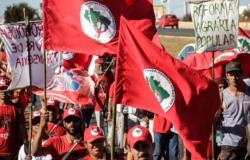The government’s total collection of federal revenues reached, in March, the best performance since 2000 – both for the month of March and for the quarter. The R$190.6 billion raised last month represents a real increase, discounted for inflation, of 7.22% compared to March 2023.
The increase observed in the period can be explained by the return of PIS/Cofins taxation on fuels and the taxation of exclusive funds (which yielded R$3.38 billion to the public coffers). In the year to date, the Federal Revenue collected R$657.7 billion, a real increase of 8.36%.
The government, however, did not have time to celebrate the good news contained in the announcement, this Tuesday, April 23, made by the Federal Revenue Service. The economic team, led by Minister Fernando Haddad, and Planalto’s political organizers were more concerned with seeking new sources of revenue and avoiding, in the National Congress, the approval of new expenses that would further increase the fiscal deficit.
The scenario of the day accurately reflects the contradiction that marks the economic policy of the current government. On the one hand, a succession of good news – falling inflation and unemployment, economy growing above expectations, falling interest rates and, now, record revenue.
The gains, however, are neutralized by the federal government’s inability to control spending and increase revenue. The result of this is fiscal imbalance, which led the economic team to decide, last week, to abandon one of the golden rules of the fiscal framework, pushing the target of zeroing the primary deficit scheduled for December to 2025.
Economists heard by NeoFeed warn that this contradiction between macroeconomic gains and fiscal deficit has been occurring since last year. The difference is that the period of goodwill that marks every start of the government ended at the turn of the year. To top it off, as 2024 is an election year, clashes between the Executive and Legislative branches tend to make it even more difficult for the government to achieve fiscal balance.
“Of course, in the first quarter part of this recovery occurred due to “non-recurring” taxes, due to government measures, but there is no doubt that the greater supply of credit, the heated job market and falling interest rates have been making their contribution”, he says Julio Hegedus Netto, chief economist at brokerage Mirae Asset.
He has doubts, however, whether these gains are sufficient to ensure the government’s fiscal targets for the year. “The government achieved important results, but it is necessary to consider that expenses have been growing at a strong pace, above 10%.”
Limited fundraising
The biggest difficulty for the economic team is precisely in equalizing the growth in expenses with the limited revenue. For Alex Agostini, chief economist at risk agency Austin Rating, a series of factors allow us to say that the account will not close. He cites as an example the rigid budget, with more than 90% of the total committed to mandatory expenses.
“The alternatives are, for example, increasing revenue via tax burden, but the government has already been doing this”, he states, citing the taxation of electronic betting, accounts in dollars, exclusive and offshore funds, ICMS subsidies and change of casting vote on the Administrative Council of Tax Appeals (Carf).
“All of this, in theory, would help the economic team to balance its plates, but there is still the political wing of the PT, including President Lula, opening the tap for more spending and the money going down the drain, in search of support for the elections. ”, he adds. “It’s a shot in the foot by the government, we saw this film in 2014. And what happened in 20215 and 2016? A gigantic economic crisis.”
Strictly speaking, the political scenario is compromising, one by one, economic gains. And the government’s villain is no longer the Central Bank (with its restrictive monetary policy last year to contain inflation), but the National Congress, controlled by Centrão.
The battlefield is set and not in favor of the government, which is preparing to defuse the so-called bomb agendas that should be voted on in the coming weeks, with the prospect of further reducing revenues.
One of them is the bill that deals with the Events Sector Emergency Resumption Program (Perse) — aid to the events sector after the pandemic.
The government even sent a provisional measure (MP) to Congress ending the program, but parliamentarians overturned the MP and were scheduled to vote this Tuesday, April 23, on a replacement that sets the limit of R$15 billion for the tax cost of the benefit until 2026.
Two other proposals threaten to drain government revenue. The so-called proposed amendment to the Constitution (PEC) of the Quinquennium, for example, provides for an appreciation bonus for time served for members of the Judiciary and the Public Ministry, with an impact on the Union Budget that could reach around R$40 billion .
Furthermore, the government is still working to reach an agreement with parliamentary leaders regarding the R$5.6 billion vetoed in amendments by Congressional committees. The hope is that “only” R$3.6 billion will be released.
With this gloomy picture as a backdrop, Hegedus Netto, from Mirae Asset, outlines an objective scenario for the government to achieve fiscal balance, which is difficult to achieve. “To achieve the zero deficit target, a 13.5% increase in revenue would be necessary, but the current projection is only 8.8%, with a downward trend”, he says, remembering that, for 2025, it is estimated that more than R$50 billion in extra revenue will be needed.
According to him, the ideal would be a tidying brake, an adjustment for expenses. “But this government, for political or electoral reasons, doesn’t seem very willing to do that”, he adds.
In other words, the economic team’s options are becoming increasingly limited. Economist Alex Agostini, from Austin Rating, agrees that the possibility of reducing expenses is an unlikely hypothesis.
“It depends on part of the administrative reform, which Congress should not change now”, says the economist, adding that another part could come from the reduction of ministries and commissioned positions, something also unlikely in an election year.
Agostini even mentions a third option – selling assets, as the previous government did – but recognizes that it will never be implemented.
“In fact, we would have to have, contrary to the world, an absurd growth in the Gross Domestic Product (GDP), which is difficult to happen”, he warns.






